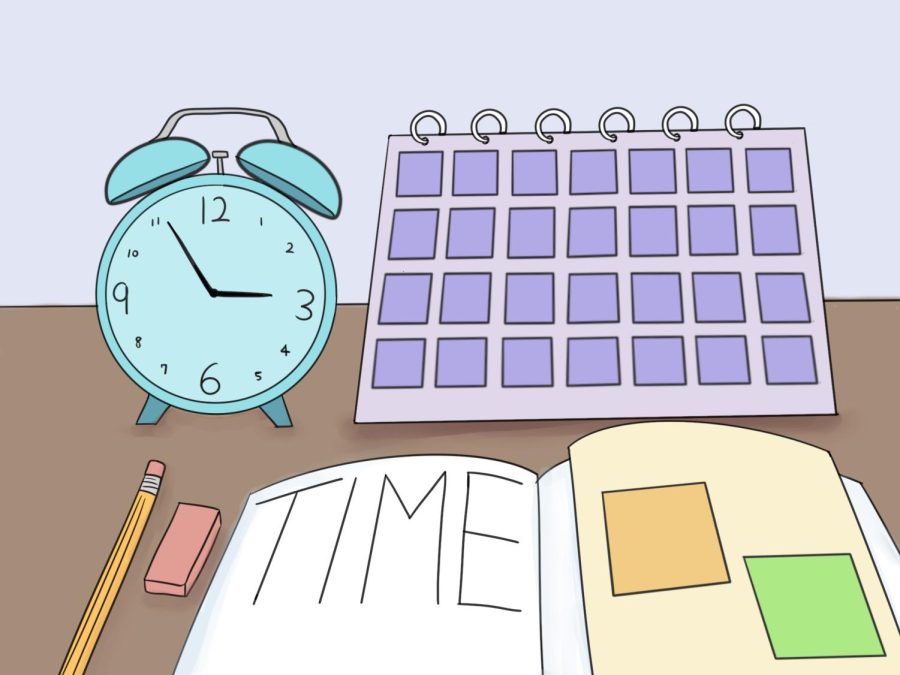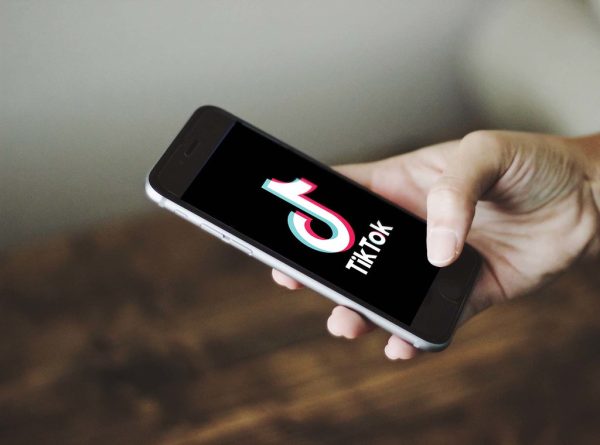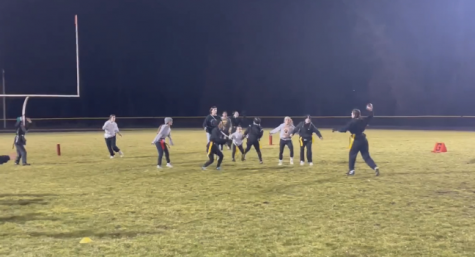School Survival Guide #1: Time Management
“Don’t put off until tomorrow what you can do today” -Benjamin Franklin. As much as we all want to live by this motto, there are a select group of people that are able to follow this discipline. Time management is an ongoing struggle that most students face every day. In response to a poll conducted amongst the students at Cresskill High School, 82% of the polled reported themselves to be procrastinators. Procrastination affects stress levels, quality of assignments, compromises sleep and health, and greatly impacts relationships. But it doesn’t have to be this way: here are a few methods and strategies that can help you overcome procrastination and assist you in managing your time more effectively.
The Importance of Routines:
The reason many people struggle with procrastination is because they believe all they need is more motivation or willpower. There is a common misconception that people who seem to be great at time management have impeccable willpower and exceptional self-control. While in theory, these factors would be effective for successful time management, in reality, they are rarely attainable. While there are a lucky few who possess such qualities, the majority needs to find an alternative. And lucky for us, researchers have found the key: habit. Managing time does not require the use of great self-control but it is deeply rooted in the power of a routine. People perceived as efficient were actually proven to encounter the least amount of decisions that would require them to exercise the power of will. As creatures of habit, some of us may not even realize how much habits dictate our actions every day. For example, when you woke up this morning, what was the very first thing you did? Which sock did you put on first, your left or your right? Did you brush your teeth? These are just a few of the numerous habits that dictate those 20-30 minutes each morning. And just like good habits can help us, bad habits can be self-destructive. Now that you know of this key called habit, here is how to break up with bad habits, form positive ones, and let them do the work for you.
Make it so easy you can’t say no. — Leo Babauta
In order to form successful, sustainable habits, starting small is crucial. As humans, we lack willpower, so starting by implementing small habits will help you get closer to your goal without having to exercise too much self-control. As those small habits become a part of your daily routine, start implementing more of them, little by little until you’ve formed a well-rounded routine. As author and blogger, Leo Babauta says, “make it so easy you can’t say no”. With regards to time management, a first small habit could be as small as taking a minute at the end of each class to write down your assignments; rewarding yourself with 5 minutes of music or a sweet snack after finishing an assignment, and then immediately resuming your studies; deciding on creating a screen time for yourself; or even putting your phone on do not disturb when doing your homework. As you begin following habits, even ones as small as these, you will notice significant changes in your day-to-day life and will naturally develop more beneficial habits that will help you alleviate stress and manage your time effectively.
Organization is Key:
For maximizing studying efficiency, planning out what one is going to complete and when it will be completed is crucial. By doing so, it relieves stress; one will feel more inclined to study if assignments are planned out. Researcher E.J. Masicampo, and his colleague, Roy F. Baumeister, composed a research paper claiming that once humans commit to the idea of completing a task, they tend to think less about it. Masicampo states, “When we write information down…we feel relieved from the need to hold onto it mentally.” This is why the use of items such as to-do lists and planners are beneficial. It has been scientifically proven that the use of to-do lists increases productivity and success rates. Senior doctoral student, Shamarukh Chowdhury, performed an experiment comparing students who use written to-do lists, versus students who create to-do lists on pieces of random paper/back of napkins, versus students who make mental to-do lists. Results showed that those who created formal to-do lists were the most productive out of all three groups and conscientiousness, the desire to thoroughly complete tasks and excel, increased.
Writing down assignments as soon as the teacher announces it is a healthy habit to carry out because it prevents accidents from occurring. Relying on Classroom for reminders is not enough; some teachers don’t post on the stream.
Mr. Nemeth, a math teacher at CHS, advocates for this idea as well: “It’s good to keep a record of [assignments] in a journal or a planner…that way you can have everything all in one place.”
Mr. Nemeth is well-known at CHS for his work ethic: once you take a quiz or test in his class, your grade will always be out within the next 48 hours. However, he has not always had this efficiency and believes that the only way to improve is by organizing and planning ahead.
Rikut Tsurushima, a senior at Cresskill High School, also explains the importance of this habit. Tsurushima is a student-athlete, participating in both football and wrestling during the school year. This means that his schedule is constantly jam-packed with practices, games, matches, social obligations, and obviously, academics. Having experience when it comes to maintaining a busy schedule, he firmly believes that “Being organized prevents wasted time.” Instead of worrying about what to do next, writing things down and planning out the steps to complete them will make use of the limited time one has.
It is important to recognize that completing assignments and then studying is far more beneficial than the other way around. Completing assignments first, whether that be unfinished classwork or homework, will minimize the pressure weighing you down. As you study, you won’t be thinking about the assignments you still have to finish because those assignments are complete. Hence, all of your attention can now be focused on the assessment you have to study for.
Now, you might be wondering, how can I organize the assignments I have to complete before studying? The answer is DIFFICULTY. Completing difficult assignments first will prevent burnout. How? If one completes easy assignments first and then difficult assignments after, one’s brain would be fried when having to study for an important assessment after. However, if one completes the tougher assignment first, completing the smaller assignment would then feel much more manageable, as the stress of the bigger assignment has now been alleviated. Thus, the student’s brain will feel relieved and ready to tackle the more minute studies.
Helping Others While Helping Yourself:
No student needs to be completely independent when it comes to schoolwork. Trying to finish all your work individually can be difficult and can increase burnout and procrastination. FaceTime or phone a friend; having someone that can talk to you and also hold you accountable is beneficial for both parties. As long as both students are mostly on task and continue to push each other, success is inevitable.
The first step is how to choose your accountability partner. It is always tempting to just phone any friend and talk to them while doing work, this will likely serve as a distraction instead of a helpful tool. Find someone who takes similar classes to you and make sure you are going into these conversations with the intention of helping each other and staying on task. Having a buddy who you frequently argue and mess around with isn’t the best idea. Choose an accountability buddy that has a similar schedule to yourself and has the motivation and trust to rely on one another. A one-sided accountability partner does not work, it must be a symbiotic relationship.
Here’s what you can do with your accountability partner: create deadlines for each other and mark times while studying to finish an assignment. Make sure both of you are on task. Sophomore Stella Cho said, “my friends keep me on task when I procrastinate or take short breaks that eventually turn into 30-minute breaks, they are always there to stop me and give me the motivation to continue working”. In a study conducted by Psychologist Robert Jeffery, people with social support (accountability buddies) were almost three times more successful in adhering to behavioral change than those who were on their own. From experience, an accountability buddy can make a significant difference, whether from studying or collaborating on ideas with homework. If you have a quiz or test, test each other. Take advantage of having an accountability partner, and learn from each other. Cho also stated that “a main benefit of working with friends is having the opportunity of someone next to you that can proofread or check your work and share thoughts and ideas to make sure you know your material well”. Receiving honest feedback is one of the best ways to learn and improve with a friend. While straying off tasks hinders you from achieving your goals, breaks are just as important as keeping each other focused. If kept in check, breaks can drastically increase productivity when working for long periods of time. An accountability buddy helps you stay on track while simultaneously allowing you to enjoy the work that you are doing.
Action precedes motivation. — Robert Mckain
To conclude this article, one must keep in mind that motivation will not come by itself. As author Robert Mckain says, “action precedes motivation” Start taking steps in the right direction and as you see positive changes, inspiration will surely follow. Writing this article, we researched and took inspiration from various sources to make it so easy for you that you cannot say no. Below you can find some links to sources that helped us write this article. Also linked are some planners, calendars, and books that have changed our perspective on time management and will hopefully help you manage yours. We hoped that through this article we were able to give you some beneficial advice that you can implement into your academic and everyday life.
Links:
Habits:
- https://www.vox.com/science-and-health/2018/1/15/16863374/willpower-overrated-self-control-psychology
- https://jamesclear.com/habit-guide
- https://www.psychologytoday.com/us/blog/quantum-leaps/201907/4-pictures-explain-motivation-and-confidence#:~:text=Action%20Precedes%20Motivation&text=You%20can’t%20wait%20until,and%20momentum%20immediately%20kick%20in.
Organization:
- https://hbr.org/2022/01/why-we-continue-to-rely-on-and-love-to-do-lists
- https://www.psychologytoday.com/us/blog/dont-delay/202002/do-do-lists-work
Accountability:
- https://psycnet.apa.org/record/1999-00242-015
- https://signatureanalytics.com/accountability-partners-and-why-you-need-one/#:~:text=Your%20performance%20will%20improve%3A%20When,boosts%20that%20chance%20to%2095%25.
Books:
- Power of Habit – Charles Dhuig
- 7 Habits of Highly Effective Teens – Sean Covey
- Atomic Habits – James Clear
- Make Your Bed – William H. McRaven
Planners:
Calendars:
Your donation will support the student journalists of Cresskill High School. Your contribution will allow us to purchase equipment and cover our annual website hosting costs.

















